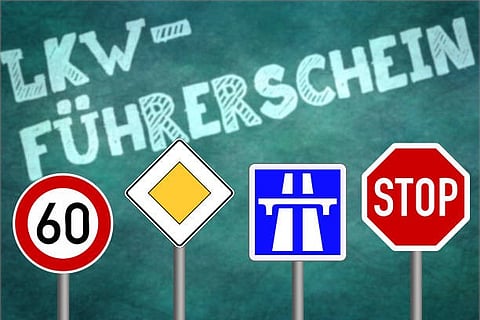Five Common Misconceptions About Contesting Traffic Tickets
Traffic tickets are a common part of driving, and their consequences can vary widely. Many people face issues like speeding tickets or running red lights. While getting a ticket can be frustrating, understanding the details can help drivers make better decisions. Traffic tickets can affect more than just your wallet—they can impact your insurance rates and even your ability to drive. Knowing how the process works and what options you have is a must.
There are a lot of myths about traffic tickets that can lead to poor decisions, like ignoring them or contesting them based on false assumptions. Misunderstandings about how tickets work, whether legal help is worth it, or how different violations are treated are common. Clearing up these myths with input from a traffic ticket lawyer in Seattle can help drivers handle tickets more wisely.
Myth 1: Ignoring a Traffic Ticket Will Make It Go Away
Ignoring a ticket won’t make it disappear—it just makes things worse. For example, if you don’t respond to a $100 speeding ticket, the fine can quickly escalate with late fees and additional penalties. In some states, like California, ignoring a ticket can lead to a "failure to appear" charge, which may result in a $300 civil assessment fee. Eventually, your license could be suspended, making it illegal to drive and potentially leading to further penalties if you’re caught driving without a valid license.
Ignoring a ticket often leads to more problems than it solves. In New York, unpaid tickets can result in license suspensions reported to auto insurers, causing higher premiums. Courts use state-wide databases to track infractions, and failing to respond can lead to default judgments. These judgments may involve collection agencies, financial stress, and damage to credit scores.
Myth 2: Contesting a Ticket Guarantees a Favorable Outcome
Some drivers believe that contesting a ticket will automatically lead to a win. The truth is, the outcome depends on factors like the evidence and circumstances of the case. For example, if you were caught on a speed camera going 10 mph over the limit, the camera footage serves as strong evidence against you.
Many drivers contest tickets without knowing the laws or evidence. For example, in Florida, claiming ignorance of a "no right turn on red" sign usually fails if the sign is clearly visible and recorded. However, showing photos of an obstructed sign might lead to dismissal. Outcomes vary—an officer missing court might help, but weak defenses can result in harsher penalties.
Myth 3: Police Officers Always Have the Upper Hand in Court
It’s common to think police officers always win in court, but this isn’t true. Judges review each case carefully, considering evidence from both sides. For instance, if a driver disputes a speeding ticket by arguing that the radar gun wasn’t properly calibrated, they can request the calibration records during discovery.
Drivers can point out errors like an officer writing the wrong date or license plate on a ticket, which can weaken the case. Evidence such as GPS data or dashcam footage can also challenge the officer’s claims. In Texas, judges often require officers to provide detailed notes or testimony, giving defendants a fair chance to question the report’s accuracy.
Myth 4: Hiring an Attorney for a Traffic Ticket Isn’t Worth It
Many people think hiring a lawyer for a traffic ticket is a waste of money. While it might seem cheaper to handle it yourself, legal representation can sometimes make a big difference. For example, in cases involving reckless driving charges in Virginia, which are considered criminal offenses, a lawyer can help reduce the charge to a simple traffic violation, avoiding potential jail time and a criminal record.
Lawyers focus on traffic laws and court processes. In New Jersey, they can negotiate to downgrade moving violations like speeding to non-moving ones, avoiding license points and insurance hikes. They often spot errors, such as incorrect radar calibration or procedural mistakes, which can reduce fines or dismiss tickets. For serious offenses like DUIs or hit-and-runs, their expertise often helps lower penalties or avoid jail.
Myth 5: All Traffic Violations Are Equal
Not all traffic violations are the same. A minor issue like failing to signal a lane change in Illinois typically results in a $75 fine, but reckless driving or a DUI can lead to license suspension, thousands in fines, and possible jail time. Each type of ticket comes with its own penalties and legal considerations.
Understanding these differences helps drivers take the right steps. For example, contesting a stop sign ticket in Massachusetts might lower the fine, while DUI charges often need legal defense and mandatory counseling. Some tickets, like parking violations, are simpler to dispute, whereas high-speed violations in construction zones often require court appearances and come with steep fines.
Knowing the truth behind traffic ticket myths helps drivers make smart choices. Addressing tickets with accurate information avoids complications and costly mistakes. Each ticket comes with unique challenges, so it’s important to evaluate the details carefully. Seeking advice when needed, staying proactive, and being informed can reduce the impact on your record and finances. Approaching tickets with confidence and clarity helps protect your rights and keeps your driving history in good shape.
Inspired by what you read?
Get more stories like this—plus exclusive guides and resident recommendations—delivered to your inbox. Subscribe to our exclusive newsletter
Resident may include affiliate links or sponsored content in our features. These partnerships support our publication and allow us to continue sharing stories and recommendations with our readers.

